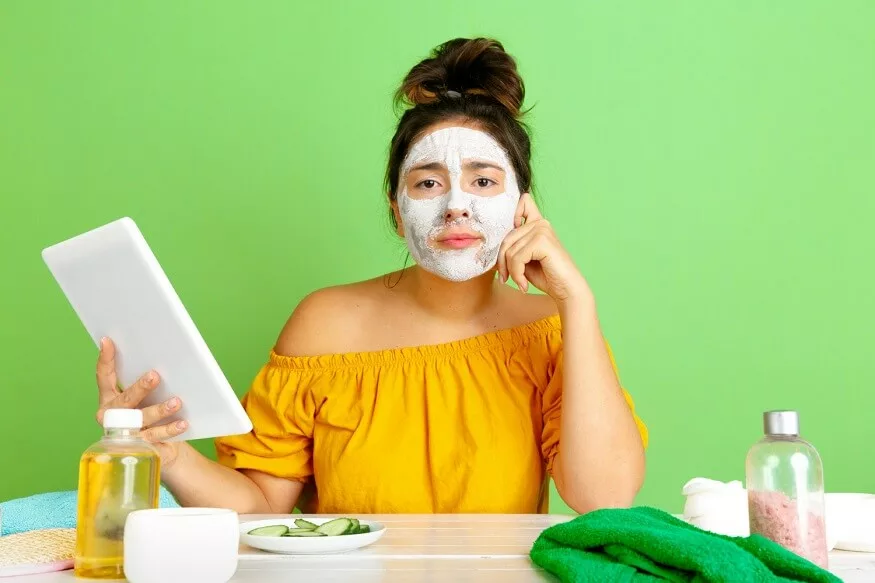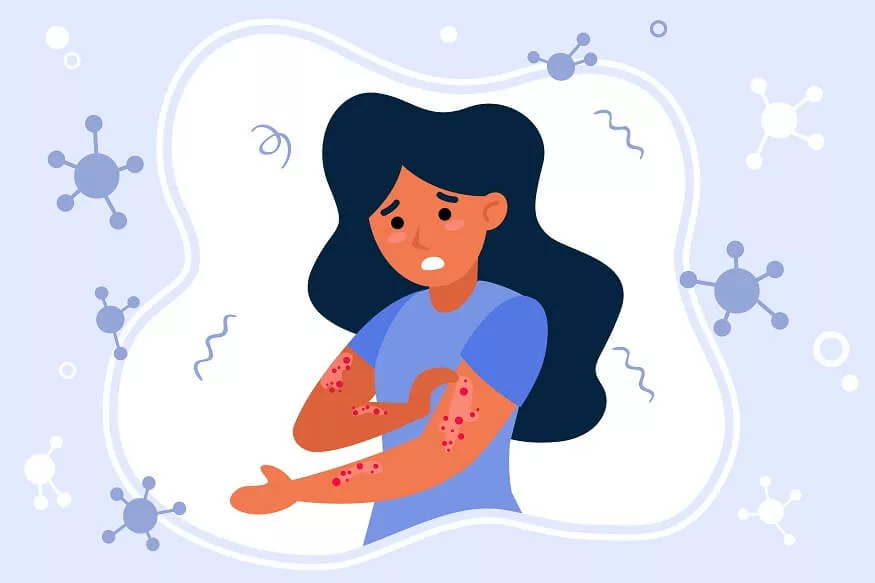Establishing a skincare routine during these formative years can contribute not only to physical well-being but also to the development of lifelong habits. In this article, we delve into the importance of skincare for teens, offering practical tips and insights to help adolescents embrace a nurturing approach to their skin.
Understanding Teenage Skin
Understanding teenage skin is crucial for providing effective skincare tailored to the unique needs and challenges that adolescents face during this transitional period. Teenage skin undergoes significant changes due to hormonal fluctuations, and these changes can manifest in various ways. Here’s a closer look at understanding teenage skin:
- Increased Oil Production:
- Acne Breakouts:
- Sensitivity and Inflammation:
- Hormonal Influence:
- Skin Type Variations:
- Importance of a Consistent Skincare Routine:
- Potential Impact of Diet:
- Psychological and Emotional Factors:
- Customised Skincare Approaches:
- Balancing Acne Treatments:
Hormonal changes during adolescence, particularly the rise in androgens, stimulate the sebaceous glands to produce more oil (sebum). This excess oil can lead to a shiny complexion and may contribute to the development of acne.
One of the most common skin issues during adolescence is acne. Increased oil production, combined with dead skin cells and bacteria, can result in clogged pores and the formation of pimples, blackheads, and whiteheads.
Teenage skin can be more sensitive and prone to inflammation. Environmental factors, hormonal changes, and the use of harsh skincare products may exacerbate sensitivity, leading to redness and discomfort.
Hormones play a pivotal role in teenage skin. Androgens, which increase during puberty, are responsible for oil production. Hormonal fluctuations can also contribute to menstrual cycle-related changes in the skin, such as premenstrual acne flare-ups.
Not all teenagers have the same skin type. Some may have oily skin prone to acne, while others may experience dryness or a combination of both. Understanding one’s specific skin type is crucial for selecting appropriate skincare products.
The teenage years are an ideal time to establish good skincare habits. A consistent skincare routine helps manage oiliness, prevent acne, and promote overall skin health. Teaching teenagers the importance of cleansing, moisturising, and sun protection sets the foundation for lifelong skincare habits.
While scientific evidence linking diet directly to acne is still evolving, some studies suggest that certain foods might influence skin health. Encouraging a balanced diet rich in fruits, vegetables, and whole grains can contribute to overall well-being, including skin health.
Adolescence is a time of self-discovery, and skin concerns can impact teenagers emotionally and psychologically. Issues like acne may affect self-esteem and body image. Addressing these concerns and promoting a positive attitude towards skincare is vital.
There’s no one-size-fits-all solution for teenage skincare. Each individual may require a customised approach based on their specific skin type, concerns, and lifestyle. Encouraging experimentation (within reason) and finding what works best for each teenager is key.
While addressing acne is essential, it’s crucial to strike a balance with acne treatments. Overusing harsh products can strip the skin and exacerbate sensitivity. Encourage teens to use targeted treatments in moderation and seek professional advice if needed.
Also Read: Baby’s Skin Rash – Causes, Treatment & Prevention Tips
Skin Care For Teens – Building a Skincare Routine
Here’s a step-by-step guide to help you establish an effective skincare routine:
1. Understand Your Skin Type
The first step in building a skincare routine is to identify your skin type. Whether you have oily, dry, combination, or sensitive skin, this knowledge will guide your product choices. For instance, oily skin may benefit from oil-free products, while dry skin requires extra hydration.
2. Determine Your Skincare Goals
Assess your skincare goals. Are you targeting acne, fine lines, uneven skin tone, or overall hydration? Knowing your objectives helps you select products that address specific concerns.
3. Start with the Basics
Every skincare routine should include three fundamental steps:
- Cleansing:
- Moisturising:
- Sunscreen:
Use a gentle cleanser to remove dirt, oil, and makeup. Cleanse in the morning and night.
Apply a suitable moisturiser to keep your skin hydrated. Even if you have oily skin, a lightweight moisturiser is crucial to maintain balance.
Protect your skin from harmful UV rays by using a broad-spectrum sunscreen with at least SPF 30 during the day.
4. Introduce Targeted Treatments
Depending on your skincare goals, incorporate targeted treatments into your routine. Common ingredients include:
- Vitamin C: For brightening and combating free radicals.
- Retinoids: Known for anti-ageing properties and skin renewal.
- Hyaluronic Acid: Boosts hydration.
- Salicylic Acid/Benzoyl Peroxide: Helps with acne and blemishes.
Also Read: How to Wash Hair For School Children: Steps, Methods
5. Add Serums or Essences
Serums or essences can provide concentrated doses of active ingredients. Apply them after cleansing and before moisturising for optimal absorption.
6. Exfoliate Regularly
Exfoliation helps remove dead skin cells, promoting a smoother complexion. Use a chemical exfoliant (e.g., AHA or BHA) 1-2 times a week, depending on your skin’s tolerance.
7. Eye Cream
If targeting specific eye concerns like dark circles or fine lines, consider incorporating an eye cream into your routine. Apply it before your moisturiser.
8. Listen to Your Skin
Pay attention to how your skin responds to each product. If irritation occurs, scale back or eliminate the product causing issues. Likewise, if you notice positive changes, continue with your routine.
9. Consistency is Key
Establish a consistent routine. Skincare is most effective when done regularly. Stick to your routine for a few weeks before expecting significant results.
10. Adjust According to Seasons
Your skin’s needs may vary with seasons. In colder months, you might need a richer moisturiser, while lighter products may suffice in warmer weather.
11. Consider Professional Advice
If you have persistent skin concerns or are unsure about product choices, consult a dermatologist. They can provide personalised recommendations based on your skin’s unique needs.
12. Hydrate and Maintain Overall Health
Skincare isn’t just about products. Stay hydrated by drinking enough water, maintain a balanced diet rich in vitamins and antioxidants, and ensure you get adequate sleep.
13.Be Patient
Results take time. Skincare is a long-term commitment, and consistency is key. Give your routine time to work before making major changes.
14.Adjust Your Routine as Needed
As your skin evolves or seasons change, be open to adjusting your routine. What worked in the summer may need tweaking for the winter, and vice versa.
Also Read: Personal Grooming Tips for Kids: Importance & Benefits
Through a holistic approach, EuroSchool guides teens towards radiant youth, where self-care becomes a lifelong companion on their journey to adulthood.











